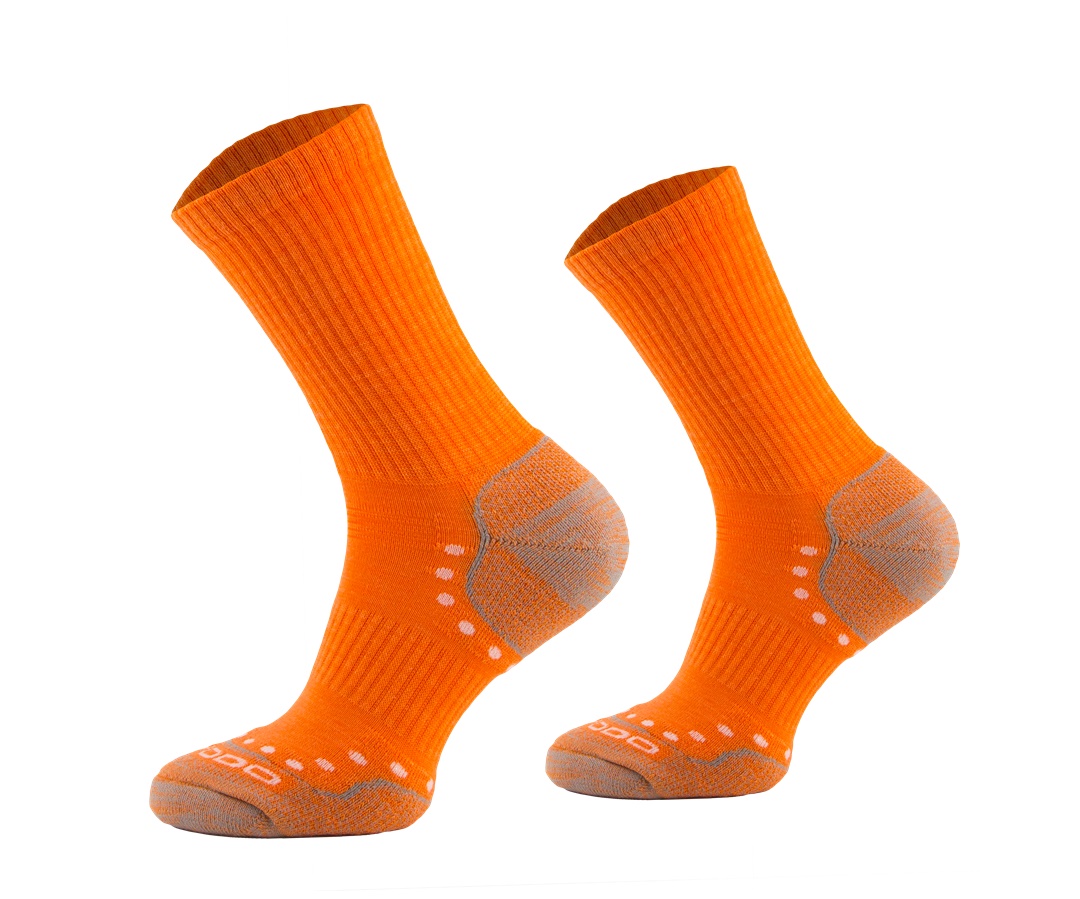
Our outdoor socks are designed for long-term wear in various weather conditions. They ensure comfort of use at low and high temperatures. Made of high quality materials, they can withstand as much as their users. For exceptional softness and comfort with every stride, Comodo technical socks with Merino wool are the must-have trekking staple for any walker.
The lightweight alpaca Merino wool hiking sock ensures the highest level of comfort while naturally regulating temperature – keeping your feet both warm in the frost and cooler in the summer months. Thanks to its self-cleaning qualities, Merino wool also offers anti-bacterial protection for long-lasting freshness. Resilient and durable, the lightweight alpaca Merino wool hiking sock in orange brings a touch of luxury to your trek.
FEATURES:
- Thermal insulation
- Naturally cooling
- Temperature regulating
- Luxury feel
- Fabric: 50% Merino Wool, 15% Alpaca Wool, 20% Polyamide, 10% Polypropylene, 5% Elastane
- Avaible sizes : 35-38, 39-42, 43-46
- Avaible colors: mustard, pink, blue, khaki, grey, black, antracite, turquoise, denim, mint, rosa, orange.
Alpaca – Merino wool is known as a natural and durable fiber that guarantees softness and warmth. In the clothing industry, it is considered a premium product because of its positive effect on the body’s functions. How is it possible?
-
Features: Merinos are a type of mountain sheep that are found in extremely difficult climatic conditions. In winter, the temperature sometimes drops to – 20 °C in these areas and rises to 40 °C in summer. The conditions in which merino sheep live have bestowed with unique properties to the wool. The wool of these sheep even after shearing retains its thermoactive properties, i.e. the wool helps to retain heat in cold weather and helps to cool down the body in hot weather. This type of wool lets moisture not only pass through the gaps between the fibers, but also through the pores of the fibers, so that the skin can breathe easily even with a thicker weave.
-
Advantages: A growing number of discerning consumers want to know under what conditions their clothing is produced. They want to know the effects of the product on the environment, on the people who make it, and finally on themselves as customers. Durability has become an important feature of the product. Wool has a flaky surface and its fibers are not evenly distributed, so when the fibers come into contact, delamination occurs and the fibers form stains. Warm, moist air additionally intensifies this effect. In order to avoid such situations, wool is processed. Schoeller is a manufacturer, which developed a revolutionary process that allows the processing of wool without the use of chlorine. This innovation is the result of the manufacturer’s commitment to environmental sustainability. The developed wool processing method – EXP Schoeller – meets the highest expectations. The chlorine-free process consumes fewer resources than conventional processes. Finally, it produces a fabric that is soft to the touch, has little “hair” and is extremely light. These properties make the clothing very comfortable to wear.


